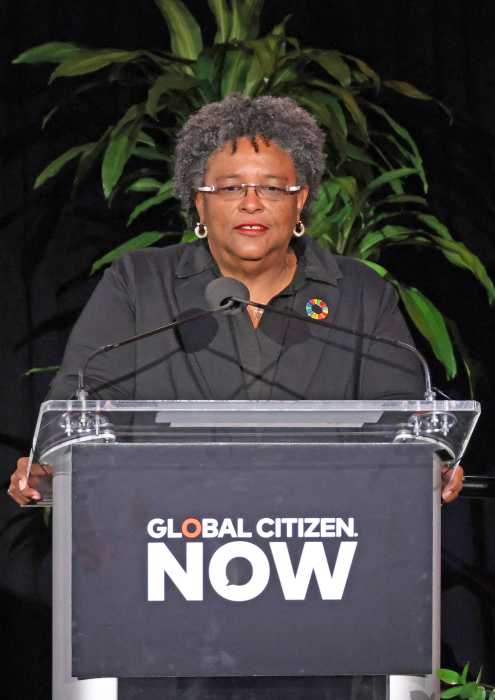The United States has supported the launch of the “Caribbean Small Business Development Centers (SBDC)” expansion project that promotes the development of competitive, productive, and innovative small and medium enterprises (SMEs) in the Western Hemisphere.
In a ceremony in Washington on Feb. 24, at the headquarters of the Organization of American States (OAS), U.S. ambassador to the hemispheric body, Carmen Lomellin, said the project will create a network of sustainable and successful small business assistance networks in St. Lucia, Dominica, Belize, Jamaica, and Barbados.
She said the newly-created network of Caribbean small business development centers will eventually be linked with similar existing programs located throughout the United States, Mexico, Colombia, and Central America “to share best practices, and to promote cooperation and support productivity and sustainable economic growth.”
Lomellin announced a US grant of US$960,000 to fund the launch of the initiative, underscoring that SMEs are “the engine of growth in the Americas” and that “equipping SMESs with the tools they need to gain access to and compete in the global marketplace is a priority throughout the region.”
She said the SBDC expansion project will be implemented in partnership with the OAS, the Caribbean Export Development Agency, and the U.S. Association of Small Business Development Centers network at the University of Texas, San Antonio.
Lomellin said the University of Texas has worked extensively to provide the U.S. small business sector greater access to SBDC partners and to expand markets and trade opportunities throughout the Americas.
OAS Secretary General José Miguel Insulza said Caribbean and Latin American countries “have long recognized the importance of micro, small and medium-sized enterprises (MSMEs) as major contributors to employment and growth within their communities, nations and the region as a whole.”
He said despite “the important challenges the sector faces, it accounts for 70 percent of the jobs and more than 50 percent of GDP (Gross Domestic Product) in the region. “
Insulza expressed his support to the project, adding that “with the right support and a structured, sustainable framework, these businesses can play an even more important role in the production network, offering numerous opportunities for increased prosperity and poverty alleviation throughout the CARICOM (Caribbean Community) region.”
Escipion Oliveira, deputy director of Caribbean Export, recalled the importance of empowering women who work in the SME.
He underscored that his program “will not only help economically but also socially in the countries of the Caribbean”.
Oliveira noted that the region has a long story of entrepreneurship, focused on traditional sectors.
“It is now the time to diversify our economy and in believing in ourselves and developing the internal market of the Caribbean,” he said, expressing hope that the program will be extended to other countries of the region.
Robert McKinley, associate vice president at the University of Texas in San Antonio, said the program “has been successful in the United States for the past 35 years” as a partnership between the government, the universities and the private sector that work on business development to provide services in business training, counseling, technology assistance and research.
He said that the long term goal is to form an inter-American network of small business development programs with two strategic purposes: development and trade, with special emphasis in women entrepreneurs.
“The Caribbean must not be left out, as the region can benefit greatly from this initiative” he said.
The OAS said the program that will be implemented by its Executive Secretary of Integral Development aims to facilitate SME access to international markets in the Caribbean.
It said its operation is based on assisting institutions to support small and medium enterprises in the region.


























